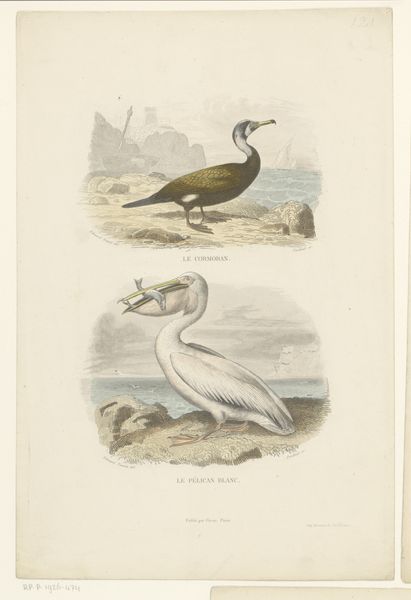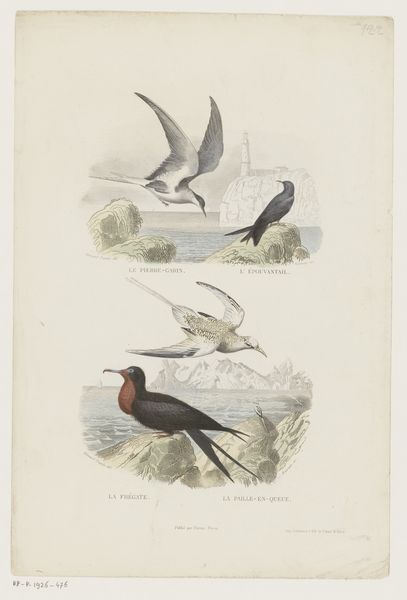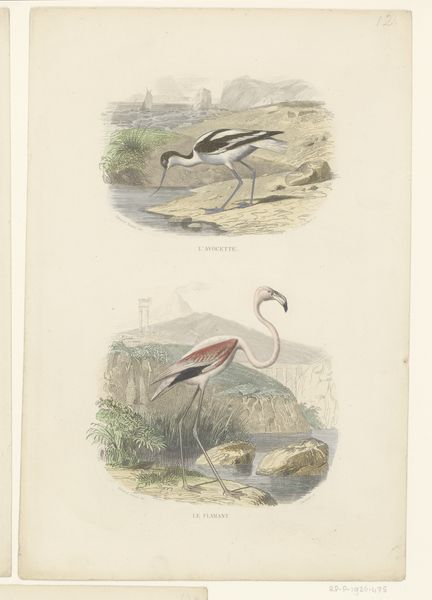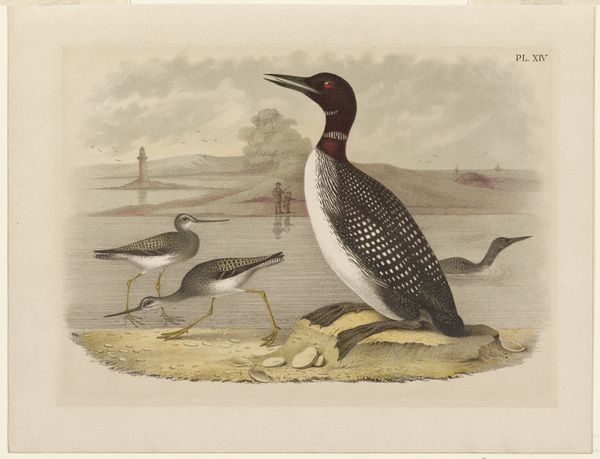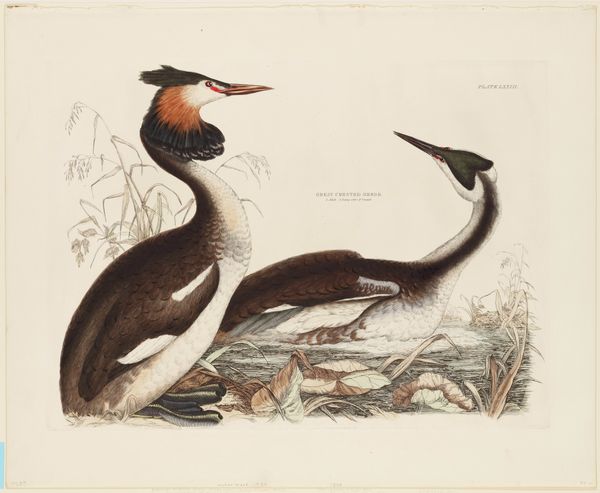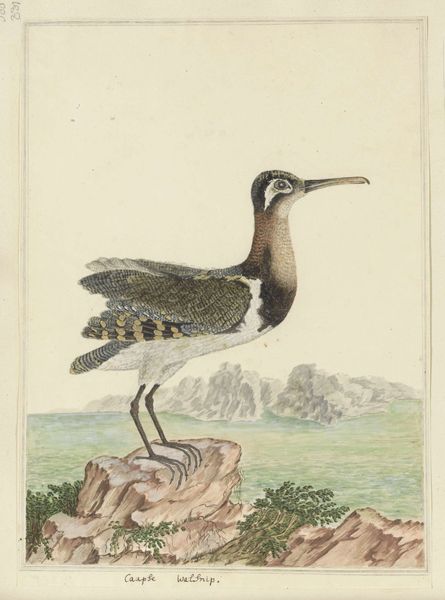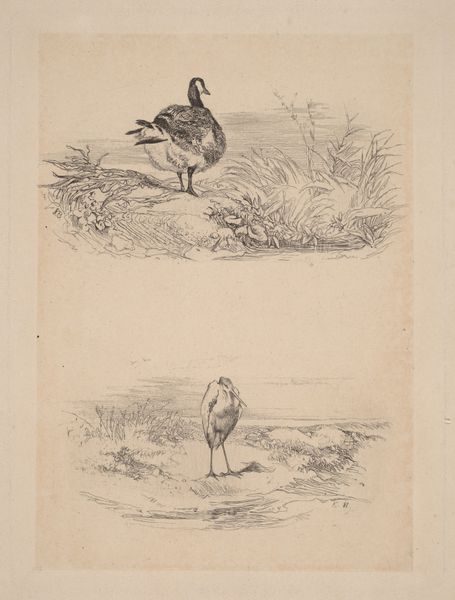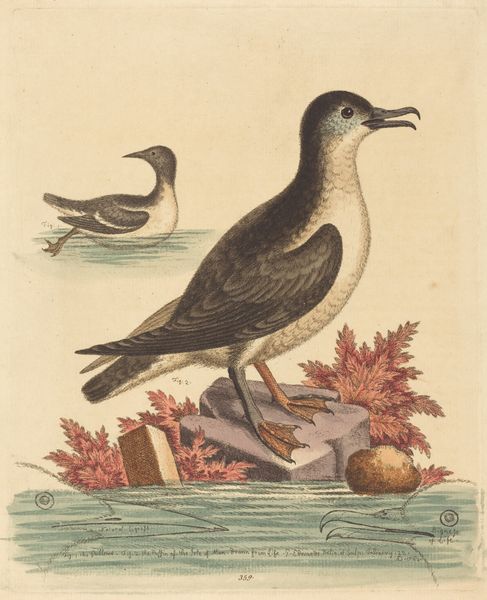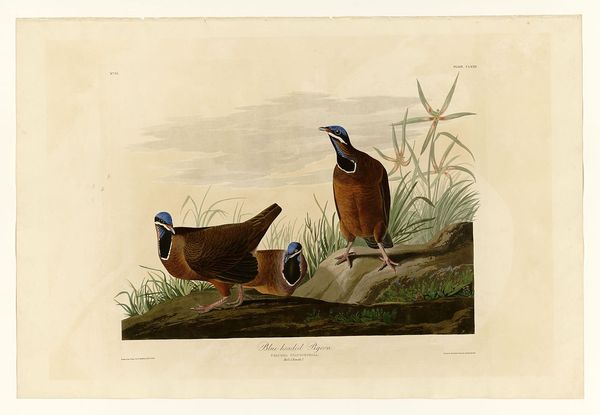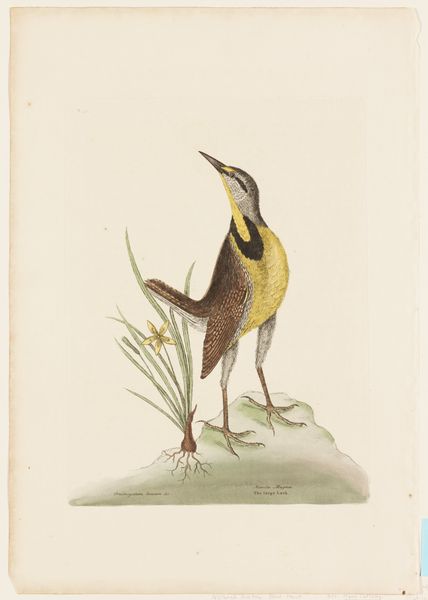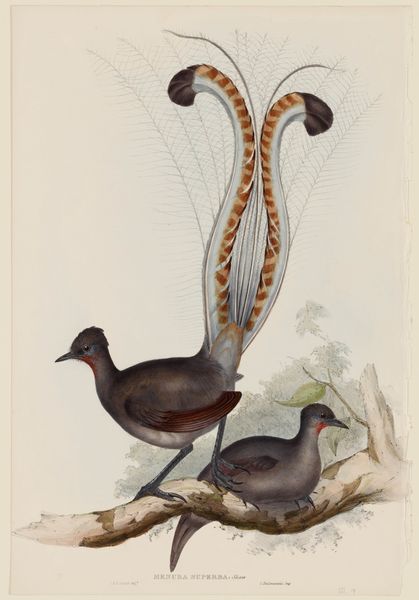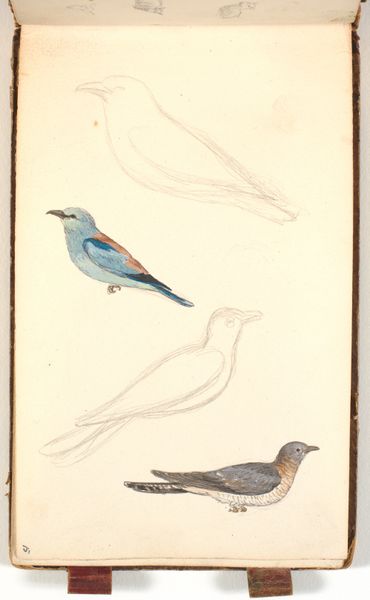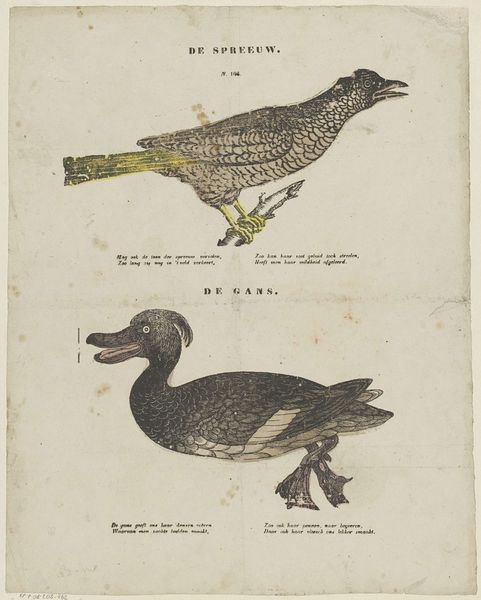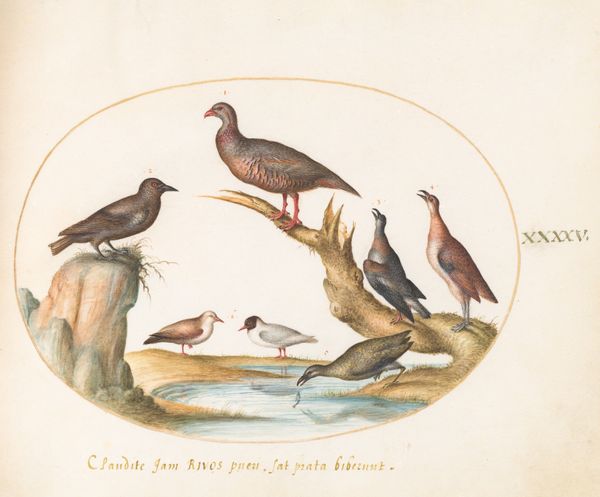
print, watercolor
#
animal
# print
#
landscape
#
watercolor
#
watercolour illustration
#
naturalism
Dimensions: height 279 mm, width 180 mm
Copyright: Rijks Museum: Open Domain
Jean Charles Pardinel made this print of a great crested grebe, pochard and great northern diver sometime in the 19th century. It's rendered using lithography, a technique that democratized image production. Lithography relies on the simple principle that oil and water don't mix. The artist would have drawn these images on a flat stone surface with a greasy crayon, then treated it so that ink adhered only to the drawn areas. The resulting prints, like this one, could then be produced in relatively high quantities. Think about the labor involved: quarrying the stone, preparing it, the skilled hand of the artist, the press operators, and finally, the people who distributed the prints. All of this activity reflects the increasing industrialization of image-making during the 19th century. The finished product, with its delicate lines and subtle gradations of tone, belies the complex social and economic forces that made it possible. It serves as a reminder that even seemingly simple images are the product of intricate networks of labor and technology.
Comments
No comments
Be the first to comment and join the conversation on the ultimate creative platform.
